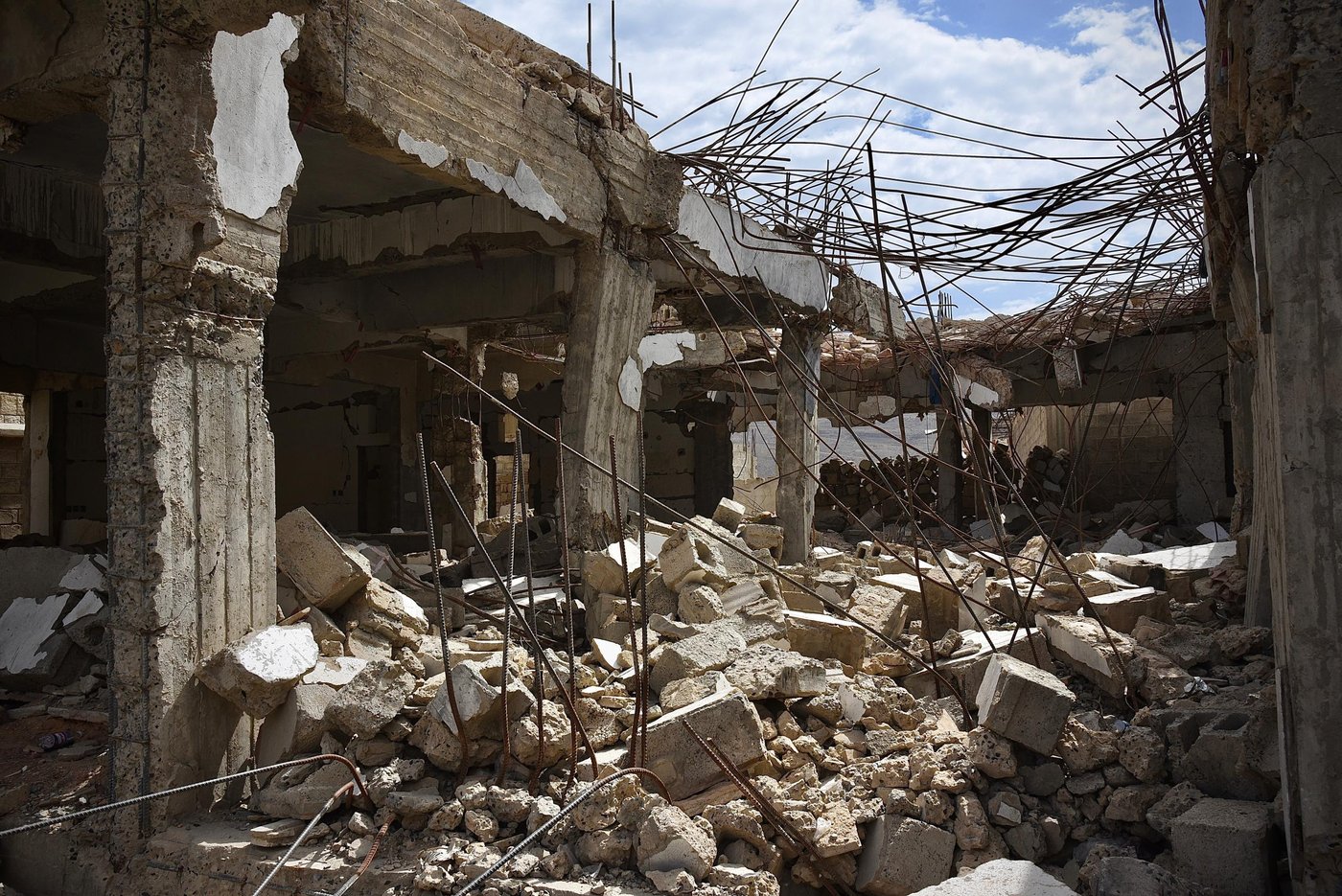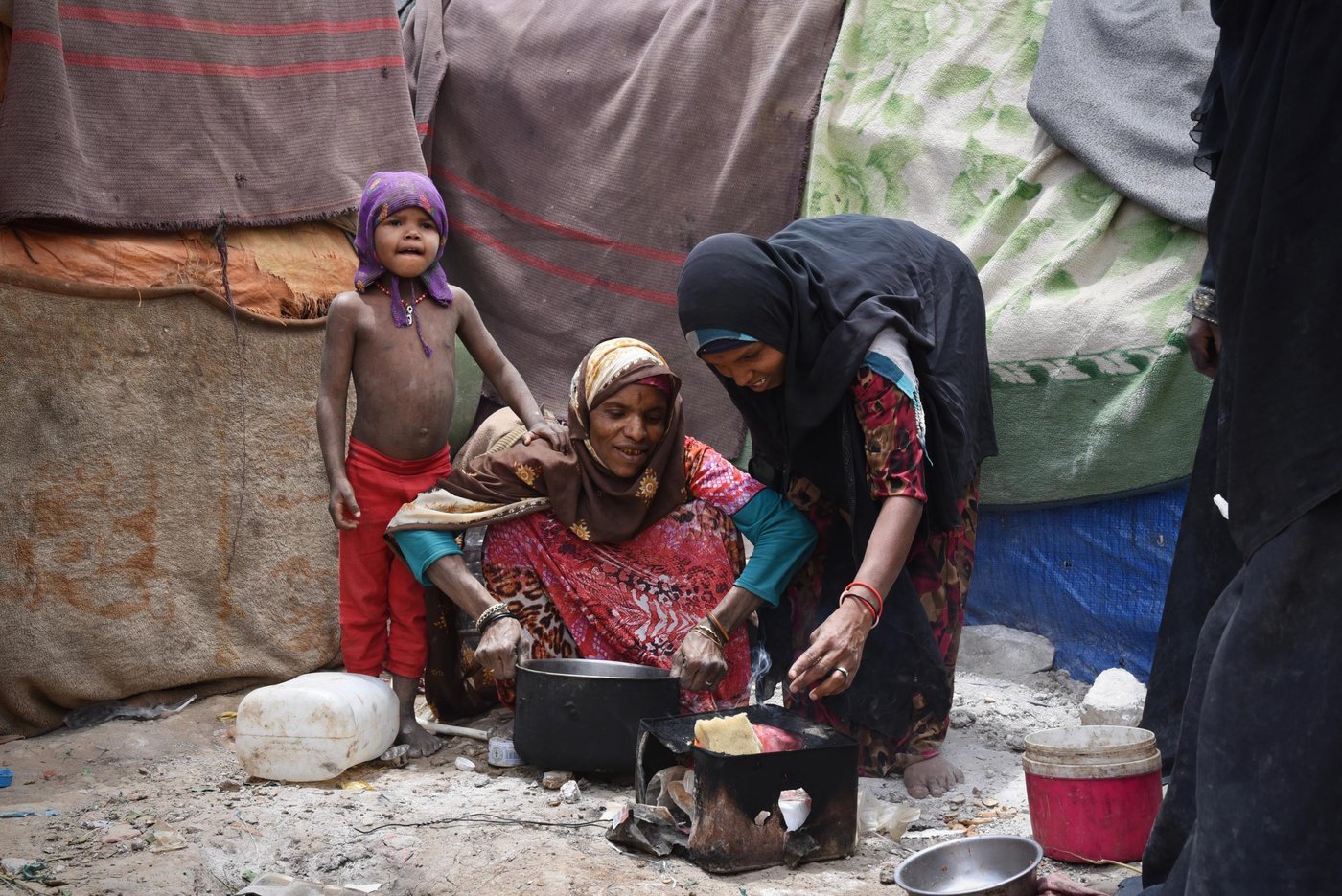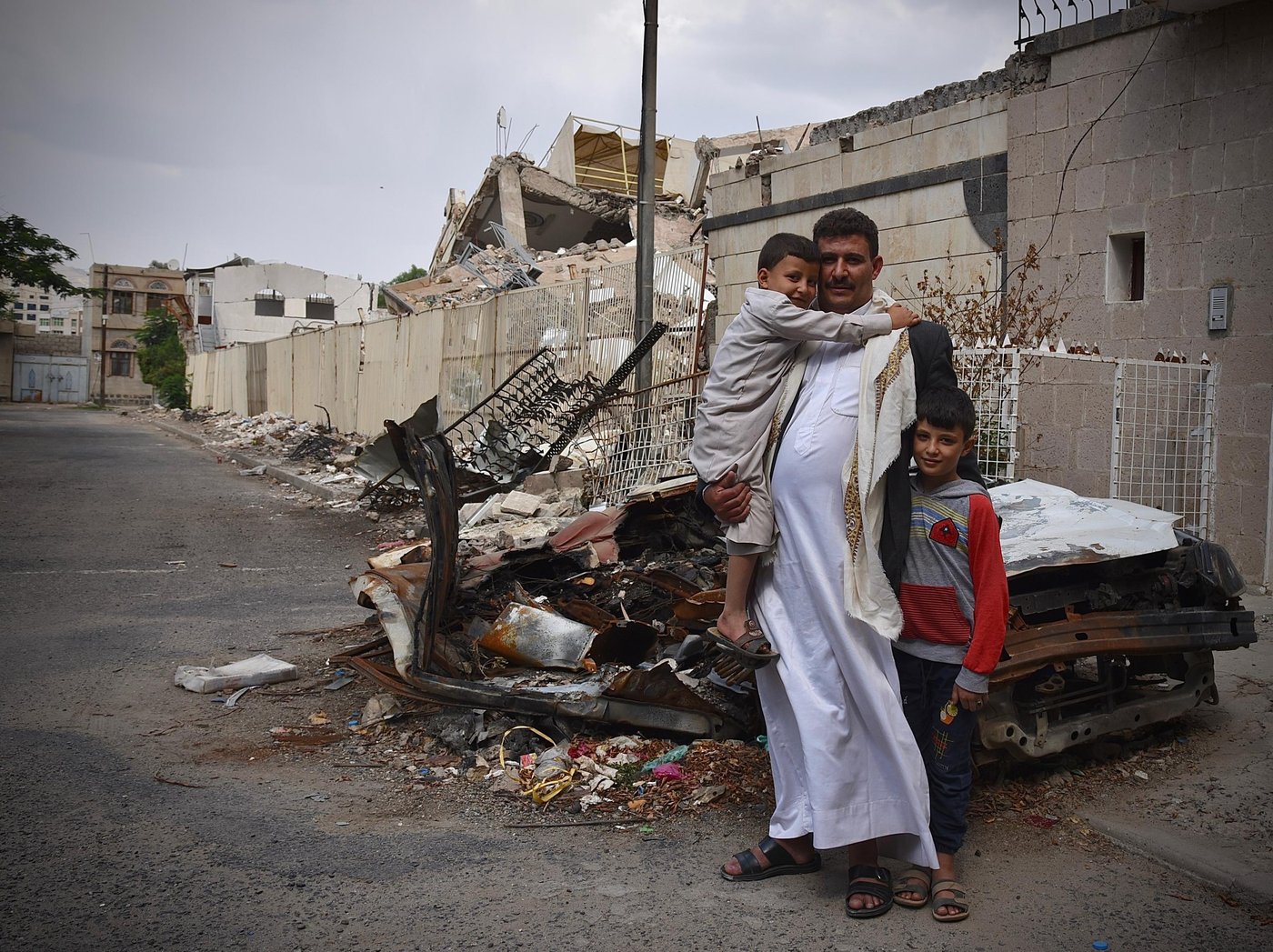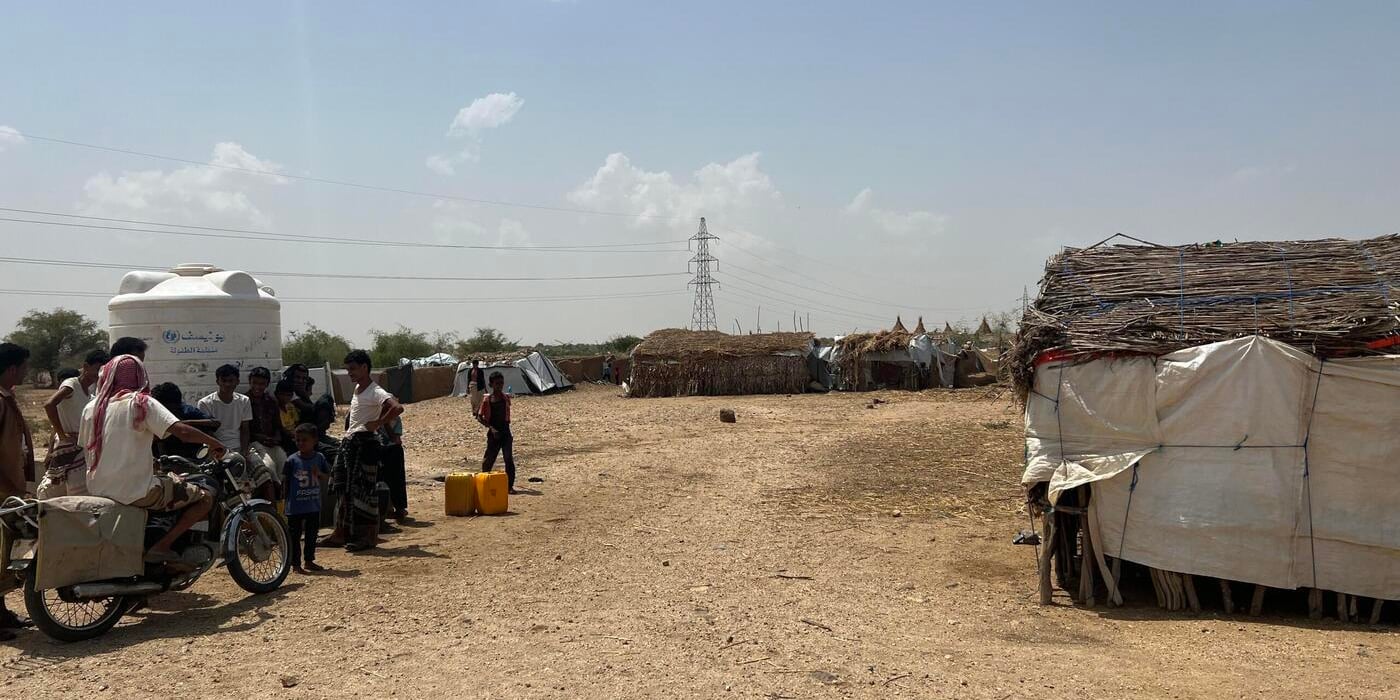
He lives in Amran governorate in western central Yemen with his wife, their three sons and two daughters.
For more than three years, Yemenis have lived in a devastating humanitarian crisis of extreme violence forcing millions to flee their homes. One evening at around 11 pm last year, Mohammed and his family suddenly heard explosions from heavy airstrikes hitting close by.
The neighbours were killed
The strikes hit a neighbouring house and killed the tenants. Another strike also destroyed the school where three of Mohammed’s children had started two years earlier. Nine civilians were killed and 2,000 children no longer had a school to go to. "It felt like they targeted my heart."
Mohammed went outside to help the injured and found his neighbours in full panic. People were running around, trying to dig people up from underneath the rubble. Jets were still hovering above their heads.
"Why are they targeting Yemeni citizens? What is our fault? We are normal citizens. We don’t have weapons, we don’t have rockets, we don’t have anything. We are peaceful citizens only looking to feed our families and children," he says angrily.
His story is not unique. More than 60,000 civilians have been killed or injured since the war erupted in March 2015. Heavy ground clashes, airstrikes and economic necessity have forced over three million people from their homes. More than eight million people are on the brink of famine, placing them at greater risk of disease in what has become the world’s largest ever cholera outbreak.
"There is no future, our life has been reduced to how to find food to feed our children. This is a catastrophe."
Read also: Ten things you should know about the crisis in Yemen

Lost their daughter
Two years ago, the war reached Zaumala and Waslame’s doorstep. On 26 March 2016, their 16-year-old daughter had gone to the local market. Airstrikes hit, and she was killed. "I didn’t know whether to run after my other children or attend to my daughter," says Zaumala.
The couple managed to bury their daughter before fleeing their home together with their eight children, leaving everything behind except the clothes on their backs. They eventually made it to an informal camp in Amran governorate where displaced families live in cramped conditions. There is no water, hygiene or sanitation facilities, and children have visible rashes and wounds on their bodies.
"I want my children to have food to eat, a school to go to, and not to have to beg other people for help," says Waslame, and her husband adds:
"We only ask to be safe. I want the world to see the situation this war has put us in. We are left to live in the worst possible way."

"I could have died that evening"
Abdulrahman, a husband and father of three young children, recounts the evening of three months ago when his neighbourhood in the capital of Sana’a was hit by an airstrike.
“We were inside, resting. I had sent my youngest son across the road to fetch water. Only minutes after he arrived back, we heard a loud explosion. The house shook violently." A bomb had just been dropped within metres of their home by a Saudi-led coalition aircraft.
“The first bomb didn’t explode. Two or three minutes later, a second bomb was dropped, we tried to secure ourselves inside the house.” Abdulrahman moved towards the window to try to spot the damage. “That’s when the third bomb hit. I was thrown back against the wall as the window of our house exploded. We ran down to the basement. My children were screaming for their lives. I could have died that evening.”
Read also: Two weeks in a warzone
The attack injured seven civilians, including four children, and damaged several houses. Abdulrahman’s family survived, but his children are clearly marked by the incident: “My youngest son still runs to a corner and hides whenever he hears planes hovering above us."
Attacks on civilians have become a deadly trend in Yemen’s war. Three years of ceaseless violence from both parties to the conflict have resulted in strikes on homes, markets, hospitals, schools and farms.
"We cannot comprehend any possible moral justification for killing civilians fleeing to safety as their towns become battlegrounds," says NRC’s advocacy and protection adviser in Yemen, Suze van Meegen. "The UK, US, France, Iran and all others contributing to the conflict in Yemen must use their influence to bring about an immediate and permanent end to the violence. We call on the countries funding and fuelling the war to ensure that civilians and civilian infrastructure are protected from attack, and that humanitarian aid is allowed to reach those who need it."



